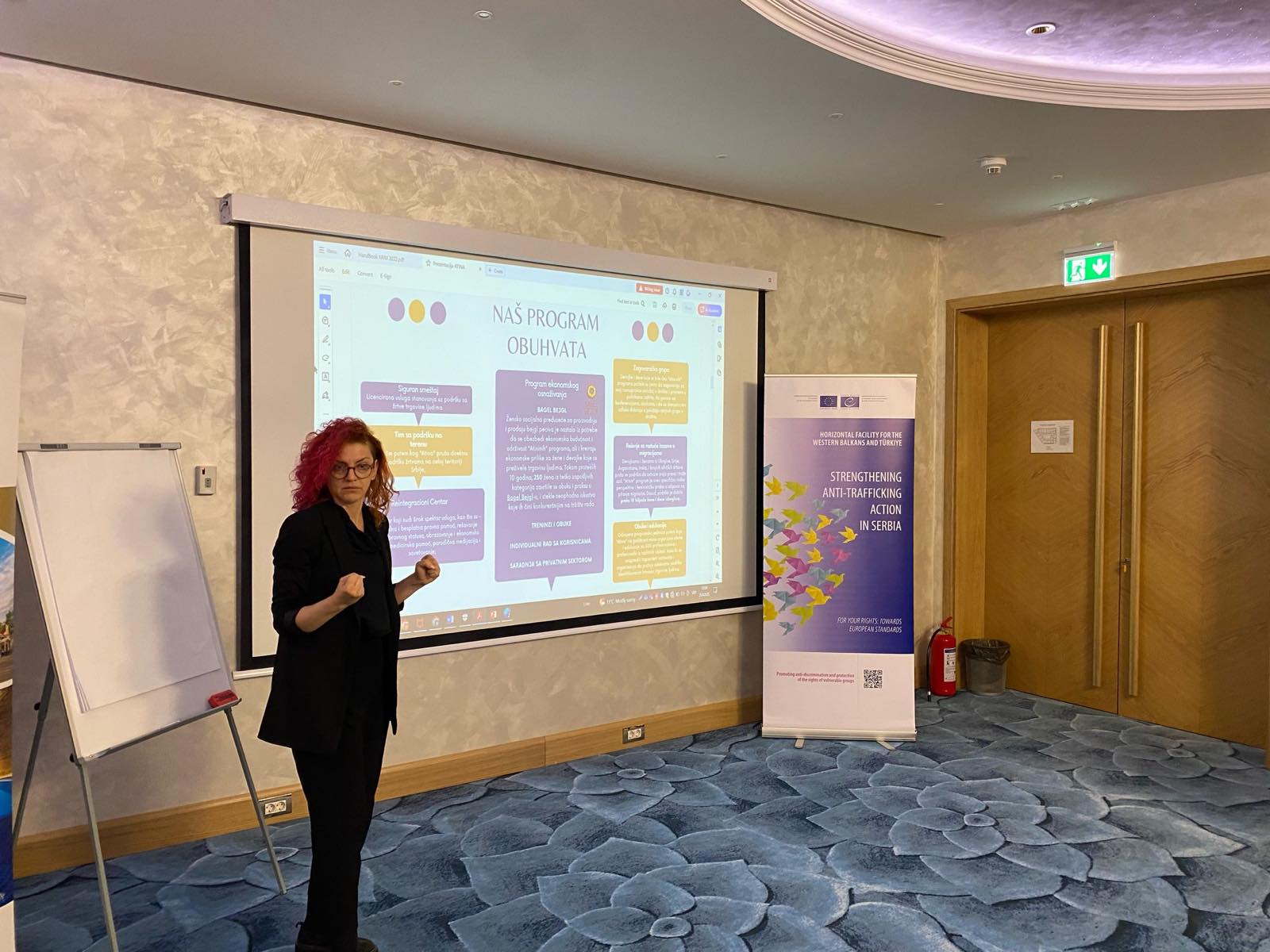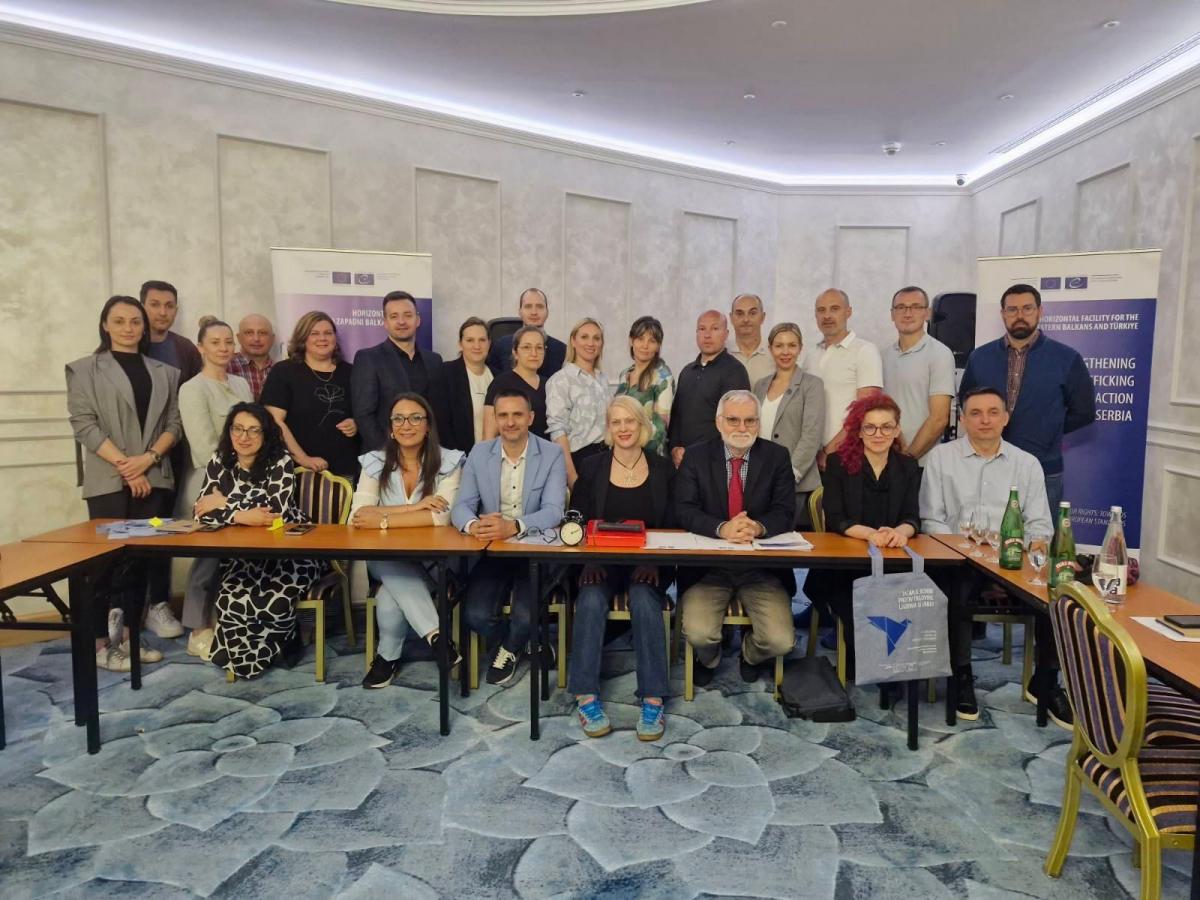Hotline: +381 61 63 84 071
Support for victims must continue after leaving exploitative situations

Support for Victims Must Continue After Leaving Exploitative Situations
As part of the “Strengthening the Fight Against Human Trafficking in Serbia” project, implemented by the Council of Europe in cooperation with domestic institutions, a seminar titled “Prevention and Combating of Human Trafficking for Labor Exploitation” was held on April 24-25, 2025, in Vrnjačka Banja.
This seminar was intended for newly employed labor inspectors who started work late last year. A total of eighteen participants from various cities in Serbia — including Niš, Prokuplje, Negotin, Kraljevo, Kruševac, Sjenica, Valjevo, Belgrade, Zrenjanin, Sombor, and others — had the opportunity to enhance their knowledge and skills in identifying and protecting potential victims of human trafficking for labor exploitation.
Through two days of intensive training, participants were introduced to the legal and institutional framework of protection, indicators of exploitation, and operational mechanisms for referring victims. The training was led by national trainers Mitar Đurašković and Ivana Radović, who encouraged active participation and knowledge exchange through a combination of lectures, practical exercises, and discussions.
The first day of the seminar focused on basic concepts of human trafficking, international standards, and the national strategy for combating this phenomenon. On the second day, emphasis was placed on inspectors' operational work, mechanisms for victim identification and referral, and intersectoral cooperation.

Atina: Victims of Labor Exploitation Must Not Be Left Alone After Leaving the Exploitative Situation
At the invitation of the organizers, during the second day of the seminar, Atina, an organization that has been dedicated to protecting and empowering victims of human trafficking and other forms of exploitation for many years, also presented its work.
Representatives of Atina particularly emphasized the importance of long-term and continuous support for victims, stressing that the protection process cannot and should not end when a person exits the exploitative situation. Through fieldwork and direct support, Atina has developed approaches that enable the reintegration of victims and the return to a dignified life, through psychosocial support, legal assistance, economic empowerment, access to education, and employment.
“Combatting labor exploitation is not complete without sustainable support for victims — only then can we speak of real human rights protection,” said Atina during their presentation.
In addition to Atina, the Organized Crime Department of the Ministry of Internal Affairs (SBPOK) and the Center for the Protection of Victims of Human Trafficking also shared experiences.
Participants were also introduced to best practices through video presentations about the work of labor inspections in Belgium, and practical exercises and case analysis in smaller groups, they developed action plans for situations where labor exploitation was suspected, coordinated institutional cooperation, and outlined steps to protect potential victims.












 FACEBOOK
FACEBOOK TWITTER
TWITTER YOUTUBE
YOUTUBE